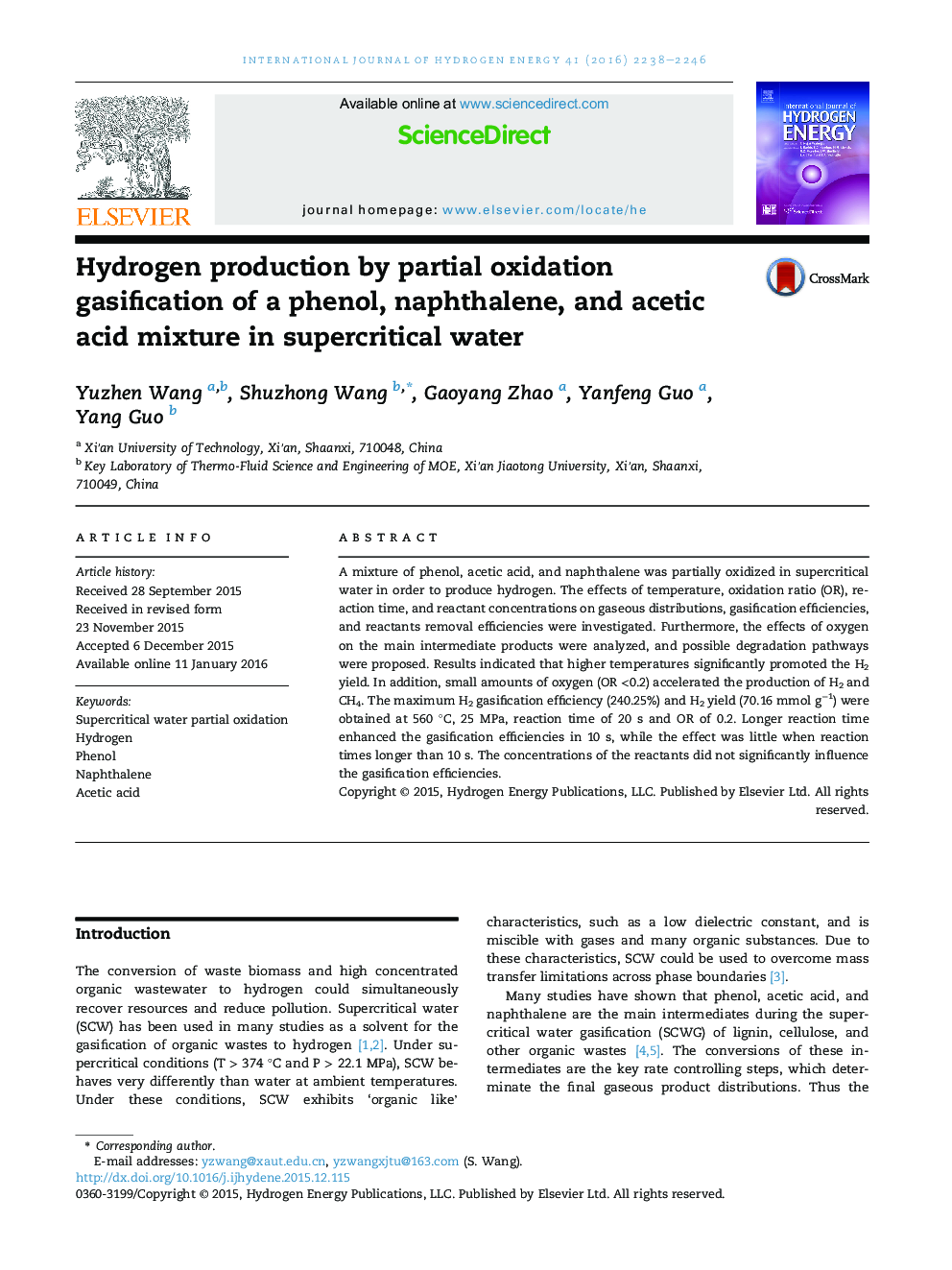| Article ID | Journal | Published Year | Pages | File Type |
|---|---|---|---|---|
| 7711687 | International Journal of Hydrogen Energy | 2016 | 9 Pages |
Abstract
A mixture of phenol, acetic acid, and naphthalene was partially oxidized in supercritical water in order to produce hydrogen. The effects of temperature, oxidation ratio (OR), reaction time, and reactant concentrations on gaseous distributions, gasification efficiencies, and reactants removal efficiencies were investigated. Furthermore, the effects of oxygen on the main intermediate products were analyzed, and possible degradation pathways were proposed. Results indicated that higher temperatures significantly promoted the H2 yield. In addition, small amounts of oxygen (OR <0.2) accelerated the production of H2 and CH4. The maximum H2 gasification efficiency (240.25%) and H2 yield (70.16 mmol gâ1) were obtained at 560 °C, 25 MPa, reaction time of 20 s and OR of 0.2. Longer reaction time enhanced the gasification efficiencies in 10 s, while the effect was little when reaction times longer than 10 s. The concentrations of the reactants did not significantly influence the gasification efficiencies.
Keywords
Related Topics
Physical Sciences and Engineering
Chemistry
Electrochemistry
Authors
Yuzhen Wang, Shuzhong Wang, Gaoyang Zhao, Yanfeng Guo, Yang Guo,
